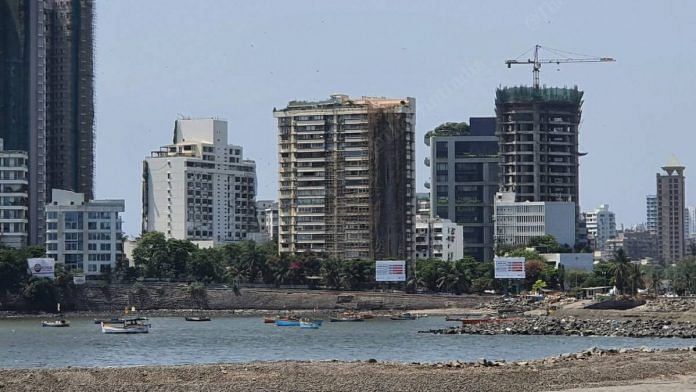New Delhi: Mumbai accounted for over 82 per cent of all the cases under the Narcotic Drugs and Psychotropic Substances (NDPS) Act 1985 in Maharashtra in 2018, according to a new study by the Vidhi Centre for Legal Policy.
The law has come back into focus after the arrest of actor Rhea Chakraborty by the Narcotics Control Bureau (NCB) in Mumbai under various sections of the NDPS Act.
Published Tuesday, the study claimed that Mumbai contributes the “lion’s share” of the total NDPS cases in the state. In 2014, the drug cases in Maharashtra spiked by almost 500 per cent, it said
“Maharashtra saw an average of 1766 NDPS cases per year between 2010 and 2013 under the NDPS Act. From 2013 to 2014, the number of cases jumped more than five times to 14622,” it says.
And Mumbai contributed significantly to this spike. In 2014, 97.6 per cent of all NDPS cases in Maharashtra belonged to Mumbai, 98.1 per cent in 2015, 96.6 per cent in 2016, and 90.5 percent in 2017.
The study analysed 839 case orders available from a database of over 10,000 cases from magistrate courts in Mumbai, extracted on 31 October 2019.
Also read: Rhea Chakraborty held in drugs case — here’s legal history of cannabis, weed, hash in India
‘97 per cent drug cases over possession’
The study also found that over 97 per cent of drug-related cases decided by Mumbai courts in 2017 and 2018 involved possession for personal consumption. Consumption of cannabis accounted for 87 per cent of all arrests and convictions in drug consumption cases in Mumbai.
Out of the 12,945 cases in 2017, 97.7 per cent (12,647) cases decided involved personal consumption of drugs, with only 298 involving the more serious offence of drug trafficking. In 2018, 97.3 per cent of the total 9,743 cases involved personal consumption, and 263 were of trafficking.
The Act provides a jail term of six months to a year, along with a fine of Rs 10,000 to Rs 20,000 under Section 27, for consumption of any drugs.
The punishment for financing illicit traffic and harbouring offenders is a jail term of 10 to 20 years and fine of Rs 1 lakh to 2 lakh. A 2014 amendment also added provisions allowing forfeiture of property of those convicted with an offence publishable with a 10-year term, including drug trafficking.
Also read: Rhea Chakraborty allegedly procured drugs — What law says, how long she’ll be in jail if guilty
‘The rich go scot-free’
The study further called the Act “one of the most draconian laws in the country”.
It said compounding this is the fact that in order to “boost their arrest rates in Mumbai, the police has chosen the easiest target: cannabis users, amongst the most marginalised sections of society: street and slum dwellers”.
“These people are unlikely to have access to legal aid and are easy to scare and apprehend,” it said.
“In terms of value, most of the drugs seized in Maharashtra are expensive psychotropic substances trafficked from across the world, presumably for consumption by an elite customer. The police, however, turns a blind eye to this,” it added.
Of all the cases analysed for the study, 179 cases provided the occupation of the accused. Data showed that in the 179 cases, 50 accused were labourers.
“Laws by themselves make no distinction between different groups of people, but the working of the criminal justice system targets those who are most vulnerable to arbitrary police action. The rich go scot-free,” it added.
Also read: Drugs, flashy parties, police uniform — ‘Sandalwood scandal’ is watertight case, police say




Cannabis is far less dangerous than the ever shrinking minority of prohibitionist freeloaders who are guilty of turning whole governments into gargantuan organised crime syndicates.